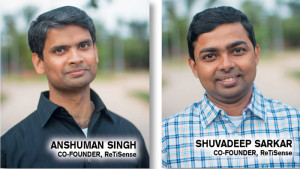 Q. What is the most important design characteristic of a wearable device that an engineer should keep in mind?
Q. What is the most important design characteristic of a wearable device that an engineer should keep in mind?
A. An important characteristic that influences the design of any wearable device is its specific functionality. For instance, our wearable device is designed to measure and analyse the running form and gait of the user but not the number of calories, steps or distance, like other fitness wearables. This influenced the design decision of placing sensors inside the shoe and connecting with the lower part of the feet, instead of being wrist-borne like a fitness band.
Q. Any unique design element with wearables that you do not typically find while designing other portable devices?
A. Wearable devices are intensely personal. This means that the designer and the person building the product have to care about how the product looks and whether it matches the identity of the user, as well as what kind of sizes the product comes in. Now, phones are considered to be personal devices, but these are pretty generic in their design and form factor.
Q. What is the most interesting challenge faced while designing such a small device?
A. These devices need to have a long battery life. Since wearables are inherently small, the physical space available for a battery is extremely limited. You also need to make sure that the user does not have to keep monitoring batteries in the device. Moreover, the charging process should be hassle-free because the user is not merely keeping it in a pocket, like a phone.
Q. Any tips on how to solve this power problem?
A. Optimising the functioning of the device in order to minimise the current drawn by the product and its sensors, as well as the power profile for communication of data to the smartphone or other companion device, should help control power consumption.
Q. How is the data-processing overhead reduced?
A. Our device shifts out most of the processing to the Cloud. Here, we have maintained a very sophisticated biomechanical model of the human leg. The model operates on real-time basis, providing users with real-time feedback. The device maintains a constant link between the wearable device, app and the Cloud server to function.
Q. How do you ensure that it does not break?
A. Critical components are kept out of the way of stress from this device. Sensors are able to collect the data from points where there is maximum pressure, ensuring that it does not affect other components that are shielded from pressure.
Q. What do we need to know about the security angle?
A. Since wearables collect an immense amount of extremely personal data about a user, it needs to have a high degree of security and privacy. Whether you are wearing a pocket tracker or fitness bracelet, the device collects information about your heart rate and other details that are specific to your identity.






